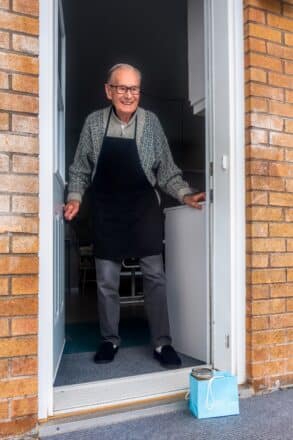In the roller-coaster ride that accompanies the closing stages of a terminal illness, the care and comfort of the patient become priorities. Known as late-stage and end-of-life care, this phase can extend from a few weeks to several years, challenging the caregiver emotionally and practically.
Key provisions during this period include pain control and symptom management through palliative measures, along with hospice care, offering emotional and spiritual support to the patient and their family. As the patient’s needs at this phase can shift significantly, caregivers might witness a sudden upswing in their responsibilities.
However, the pivotal tool of respite care can step in to grant some reprieve to caregivers, facilitating their self-care time. In parallel, navigating the emotionally draining anticipation of a loved one’s passing can be made somewhat gentle through the aid of bereavement specialists or spiritual advisors.
Taking the patient’s decisions into account early in the process and completing legal documents such as an advance directive and power of attorney is of prime importance during this time and can be a source of relief and assurance. Open conversations among family members, home-help, and possible placement in a hospice can further streamline the process, ensuring the patient’s end-of-life care aligns with their wishes.
Understanding Respite Care
Definition of Respite Care
Respite care is a form of short-term relief designed to provide rest for those who are primarily responsible for the care of loved ones who are seriously unwell, particularly those in end-of-life stages. It offers caregivers a much-needed break, allowing them to relax, rejuvenate and possibly tackle personal matters that might be difficult to attend to whilst giving full-time care.
Who offers Respite Care?
A variety of professionals and service providers offer respite care. This could be an experienced healthcare provider, a professional caregiver from a registered agency, or volunteers trained to give specialized support. Sometimes, respite care can even be provided by other family members or close friends who are familiar with the patient’s condition.
Types of Respite Care Available
Respite care comes in different forms. In-home respite involves care-taking services provided in the patient’s own home. Additionally, there’s adult day care centers where patients can be dropped off for a day and cared for while the caregiver has respite. Institutional respite care includes short stays in a care home or hospice. The choice of respite care depends on the caregiver’s needs, the patient’s condition, and what’s available in your area.
The Demands of End-of-Life Care
Palliative and Hospice Care: What it Entails
End-of-life care, which often includes both palliative and hospice care, focuses on improving the quality of life for patients dealing with serious illnesses. Palliative care, in particular, concentrates on alleviating pain and managing symptoms as effectively as possible. Hospice care, on the other hand, offers emotional and spiritual support to both the patient and their family, helping them navigate through this challenging period.
Dealing with the Emotional Toll of End-of-Life Care
Providing end-of-life care can be an emotionally draining experience. The process involves coping with the imminent loss of a loved one, which can trigger a variety of feelings including grief, sadness, fear, and exhaustion. It’s important for caregivers to acknowledge these emotions, and seek professional support, if necessary, to help manage these feelings.
Need for Support in terms of Practical Assistance
Caring for a seriously ill loved one often includes managing medications, attending doctor’s appointments, and taking care of day-to-day needs such as bathing, feeding, and dressing the patient. This can be overwhelming, especially when the caregiver also has to manage other obligations and responsibilities. Hence, caregivers often need practical assistance, which can come in the form of respite care, professional medical support, or help from other family members.

Role of Respite Care in Caregiver Self-Care
Improving Physical Health of Caregivers
Due to the demanding nature of caring for critically ill individuals, caregivers often put their own physical health on the back burner. Respite care provides an opportunity for caregivers to take care of their own health, perhaps by catching up on sleep, visiting their own healthcare provider or simply taking the time to rest and rejuvenate.
Maintaining Psychological Well-being of Caregivers
Beyond physical wellbeing, respite care plays an essential role in maintaining the psychological health of caregivers. By offering a break from the intensive care demanded by a sick loved one, respite care helps to prevent caregivers from feeling overwhelmed, drained, or burnt-out, thereby helping maintain their emotional balance and mental health.
Boosting Emotional Resilience of Caregivers
Dealing with prolonged illness and the prospect of losing a loved one can take a heavy emotional toll. Respite care allows caregivers some time off to engage in activities that boost emotional resilience. This could mean spending time with other loved ones, engaging in enjoyable hobbies, or seeking emotional support from counselor or helper groups.
Patient Comfort and Respite Care
Managing Pain and Symptoms through Respite Care
One of the crucial aspects of respite care is helping ensure the comfort of the patient in terms of pain and symptom management. Professional respite caretakers can administer medications, perform therapeutic procedures, and provide the necessary support to manage illness or side-effects, thereby reducing discomfort and enhancing the patient’s comfort.
Providing Emotional and Spiritual Support through Respite Care
Respite caregivers do more than just medical and physical care; they also provide important emotional and spiritual support to patients. They can offer companionship, empathy, and understanding, helping patients express their feelings, fears, and concerns. Additionally, some respite care providers are trained to offer spiritual support for those who seek it.
Maximizing Quality of Life for Patients
Ultimately, one of the significant roles of respite care in end-of-life care is to help maximize the patient’s quality of life. By efficiently managing the physical discomfort caused by the illness and offering emotional and spiritual support, respite caregivers can help patients experience a measure of peace, comfort, and fulfillment, as they near the end-of-life journey.

Keeping up with Shifting Patient Requirements via Respite Care
Helping Caregivers Adapt to Changing Patient Needs
The course of a serious or terminal illness is often unpredictable, with patient needs changing frequently and sometimes abruptly. Respite caregivers, by virtue of their training and experience, can help identify these changes and advise primary caregivers on adapting their care approaches accordingly.
Providing Continuous Care for Patients
By availing of respite care services, caregivers can ensure that there is no disruption to the patient’s care, even when they need to take breaks. Respite care providers can seamlessly continue the care regimen set for the patient, thus providing a consistent care experience.
Respite Care’s Role in Coherent Shifts in Caregiver Responsibilities
As a patient’s health changes over time, so do the responsibilities of the caregiver. Respite care can play a key role in facilitating these transitions. By stepping in when necessary, respite care professionals can allow the primary caregiver to focus on new tasks or responsibilities, while ensuring that the patient’s basic routines and care are maintained.
The Importance of Bereavement Specialists and Spiritual Advisors
Role in Emotional Support during Anticipated Bereavement
Anticipating the death of a loved one is an emotionally taxing experience. bereavement specialists can provide you calming and comforting guidance during this challenging period. They can help you understand your feelings, manage your reactions, and prepare mentally and emotionally for the inevitable.
Helping Navigate Emotional Responses
Everyone responds to anticipated bereavement differently; there is no ‘right’ way to grieve. Bereavement specialists can provide tailored counseling to help you navigate your unique reactions and emotions constructively.
Providing Spiritual Guidance during a Tough Time
Spiritual advisors or chaplains can offer much-needed spiritual guidance by addressing existential questions and concerns that may arise during this period. Regardless of your faith or beliefs, such spiritual guidance can help you find some measure of serenity amidst the emotional turmoil.

Advance Conversations and Legal Decisions
Need for Early end-of-life Conversations
It’s important to have open and honest conversations about end-of-life decisions as early as possible. These discussions can help ensure that a patient’s wishes about their care, treatment preferences, and other related matters are known and can be respected.
Importance of Legal Documents like Advance Directive and Power of Attorney
In line with the previous point, legal documents such as an advance directive and power of attorney can help formally record a patient’s preferences about end-of-life care and who will make decisions on their behalf if they are unable. Having these legal documents in place provides clarity for all involved and helps prevent misunderstandings or disputes.
Ensuring Clarity and Respect for Patient’s Wishes
By discussing end-of-life decisions early and completing the necessary documentation, a caregiver ensures that the patient’s wishes are clear and will be respected, which in turn brings peace of mind and relieves some of the stress associated with end-of-life care.
The Imperative of Effective Communication among Family
Helping Understand Patient’s Wishes
Effective communication among family members is vital during end-of-life care. It helps all involved understand the patient’s wishes regarding their care, their fears, and their expectations, all of which are crucial for providing the most fitting care.
Reducing Ambiguity during Care
Open and regular communication reduces ambiguity and prevents potential misunderstandings in carrying out care tasks. This way, everyone involved in the patient’s care has a clearer picture of their needs and how to meet them.
Promoting Emotional Unity among Family
By fostering open dialogues, family members can support each other emotionally throughout the process of end-of-life care. This cogent communication can alleviate feelings of isolation or helplessness and create a sense of unity and shared strength among the family.
Navigating Additional Home Help and Hospice Placement
Understanding When Additional Help is Required
Determining when additional help or specialist care is necessary can be challenging. Signs that you might need extra help include feeling overwhelmed, a noticeable decline in the patient’s health, or if the care demands exceed what you can provide as a caregiver.
Deciding on Hospice Placement
Deciding on hospice care can be a difficult and emotionally charged decision, often signifying the transition to end-of-life care. This decision should be made collectively, factoring in the patient’s desires, the type of care required, and what the caregiver can reasonably provide.
Balancing Home Care and Hospice Care
Balancing home care and hospice care can be intricate. Home care offers the comfort of familiar surroundings, while hospice care provides professional medical help and respite for the caregiver. The right balance between the two depends on the severity of the patient’s condition and the caregiver’s capacity.
Concluding Thoughts on Respite Care
Comprehensive Benefits of Respite Care for Caregivers
Respite care unquestionably offers comprehensive benefits to caregivers, from allowing them time to rest and focus on their own health to providing continuity of care for their loved ones. In essence, it gives caregivers the flexibility to best cater to their loved ones’ needs without compromising their own well-being.
Importance of Respite Care for Patient Comfort
Respite care is not just about giving caregivers a break; it’s also about ensuring patient comfort. Professional respite caregivers offer emotional, spiritual, and physical support tailored to the patients’ needs, which plays an integral part in maximizing their quality of life.
Final Insights on the Necessity of Respite Care during end-of-life
In conclusion, it’s paramount to recognize the necessity of respite care during end-of-life care. It offers relief to caregivers, accommodates changing patient needs, and ensures patient comfort is prioritized. Although end-of-life care is a poignant journey, well-managed respite care can make it a more empathetic and peaceful experience. Always remember that taking care of oneself is not a luxury but an absolute necessity for caregivers, one that aids in the provision of the best possible care.
